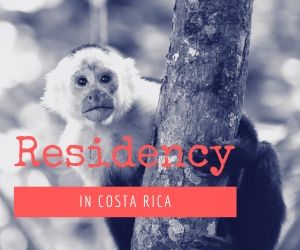|
From AM Costa Rica 5/29
Migración uncovers scams linked to residency
By the A.M. Costa Rica staff
Not every self-designated residency expert does what he or she is paid to do, and immigration officials have filed complaints with the national prosecutor's office in cases where expats have been swindled.
The latest case — and the first complaint filed by the new administration — involves Brazilians who appear to have been the victims of a scam. Immigration officials found that these residents were carrying false residency cédulas and had false residency permissions stamped in their passports.
A summary from the Ministerio de Gobernación, PolicÃa y Seguridad Pública characterized the Brazilians as victims of a scam.
A U.S. expat two months ago was jailed briefly when inspectors from the Dirección General de Migración y ExtranjerÃa found that the documents he carried were forgeries. The U.S. expat said he had paid a man he thought was a lawyer to obtain residency for him several years ago.
The man was seeking a decision by the Sala IV constitutional court so he could stay in the country. Others were believed to be in the same boat.
Johnny MarÃn, the former immigration director, and Roxana Quesada, the former subdirector, filed 85 complaints with the Ministerio Pública, and the majority of these
cases involved irregularities in applications for residency visas, said the ministry of which Migración is a part.
Mario Zamora, the new immigration director, said that he expected he will strengthen the existing controls and have better coordination with Costa Rican consuls overseas so the number of these types of cases can be reduced.
Officials involved with immigration said that their first step was to attack corruption within the agency. This suggests that the fake documents and the fake residency stamps in passports are part of an inside deal.
An open secret in Costa Rica is that certain individuals use immigration stamps to illegally renew tourist visas. Such services are used mainly by people who are working here illegally in the first place and choose not to travel outside the country for 72 hours to renew the tourism permission.
Some of these immigration stamps are forgeries, and others have been taken or stolen from the immigration agency. But still others are in the hands of immigration employees who conduct a side business of renewing visas.
Two immigration workers have been detained on the allegation that they were making adjustments in the agency's data base to reflect the fake stamps that were being placed in the passports of expats. These individuals are believed to be talking to prosecutors.
|









